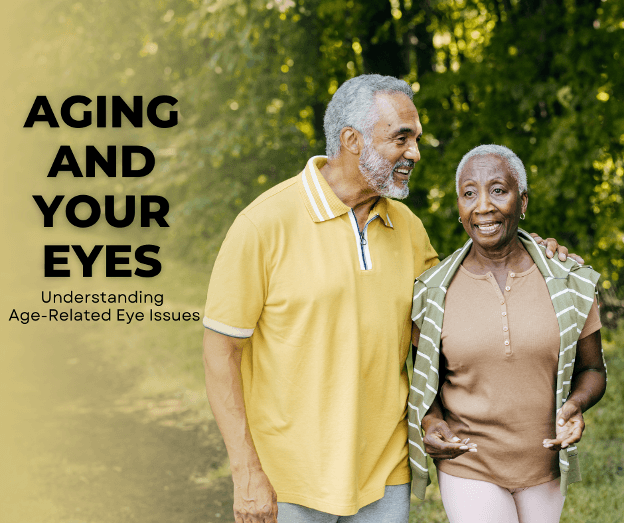Posted by: Kentucky Eye Institute in General Eye Health
 As individuals reach their early to mid-40s, they may experience difficulty seeing things clearly, particularly when reading or using digital devices. According to the American Academy of Ophthalmology, this common issue is presbyopia and affects adults aged between 41 and 60. Presbyopia is a gradual change in the eyes’ ability to focus, which worsens over time. Many adults in this age group may need to hold reading materials farther away to see them. Text in a favorite book or a restaurant menu may appear blurred, particularly under dim lighting. However, people with presbyopia have multiple options available to improve their vision. As we age, taking care of our eyes becomes increasingly essential. It is crucial to prioritize our eye health and make regular appointments with an eye doctor to check for any developing eye or vision issues. Don’t wait until you experience problems to see your eye doctor. Be proactive and show your eyes some love!
As individuals reach their early to mid-40s, they may experience difficulty seeing things clearly, particularly when reading or using digital devices. According to the American Academy of Ophthalmology, this common issue is presbyopia and affects adults aged between 41 and 60. Presbyopia is a gradual change in the eyes’ ability to focus, which worsens over time. Many adults in this age group may need to hold reading materials farther away to see them. Text in a favorite book or a restaurant menu may appear blurred, particularly under dim lighting. However, people with presbyopia have multiple options available to improve their vision. As we age, taking care of our eyes becomes increasingly essential. It is crucial to prioritize our eye health and make regular appointments with an eye doctor to check for any developing eye or vision issues. Don’t wait until you experience problems to see your eye doctor. Be proactive and show your eyes some love!Who Is at Risk for Developing Eye Problems?
Adults over 40 who have the following health concerns may be particularly at risk for developing eye and vision problems:- Chronic, systemic conditions such as diabetes or high blood pressure
- A family history of glaucoma or macular degeneration
- Many medications for health conditions like high cholesterol, thyroid, anxiety, or arthritis have side effects that affect vision.
Understanding Age-Related Eye Issues
As we age, our eyes and vision undergo changes that are unique to each individual. Some of the common changes include:- You are having difficulty reading and doing close work. Printed materials can become less clear because the lens in your eye becomes less flexible over time. The result makes it harder for your eyes to focus on objects near you than when you were younger.
- Brighter light is needed. As you age, you may require more light to see than you did previously. Brighter lights in your work or reading area will make tasks more manageable.
- Problems with glare. At night, you may notice more glare from headlights when driving. During the day, the sun reflecting off windshields or pavement can seem more brilliant. Changes in your eyesight cause light entering the eye to be scattered rather than focused precisely on the retina, creating more glare.
- You have reduced tear production. The tear glands in your eyes will produce fewer tears as you age, which may result in your eyes feeling dry and irritated. Having a satisfactory amount of tears is essential for keeping your eyes healthy and maintaining clear sight.
- Seeing colors does not look the same. The clear lens inside your eye may start discoloring, making it harder to see and distinguish between certain color shades.
Your Eye Health Matters
Maintaining a healthy diet and making wise lifestyle choices, such as not smoking, are the best ways to preserve your eye health as you age. Your choices matter, and it is crucial to prioritize your eye health and schedule regular eye exams. During your appointment, discuss any concerns you have about your eyes and vision with your eye doctor. Additionally, it is essential to inform your eye doctor about any family history of eye problems and the medications you are taking, including non-prescription medicines, vitamins, or herbs. This information will help your eye doctor provide appropriate recommendations to keep your eyes healthy.Thank you for being part of our practice family!

